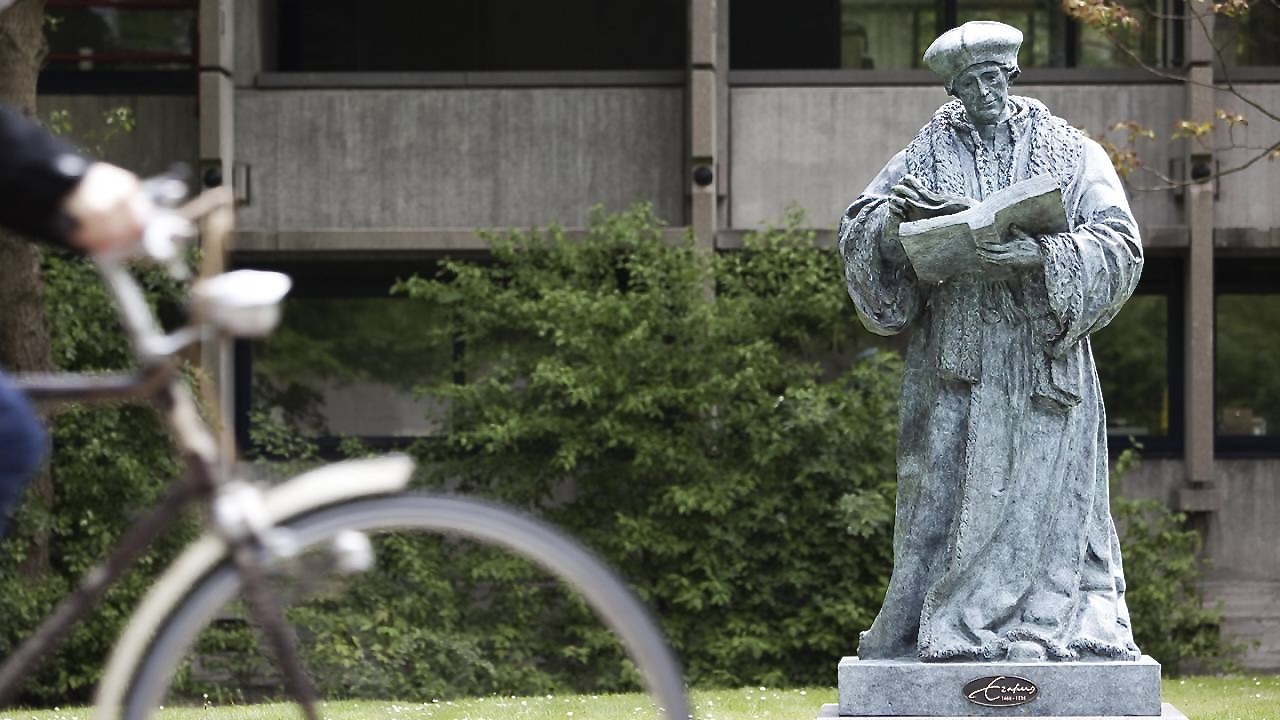By Jon DiNovo, participant at Goud op Zondag

Our city is known for many architectural feats but one that stands out among the rest is the Erasmus Bridge. I’m sure many of you are familiar with the bridge and have either walked or driven across it multiple times. It’s a gorgeous piece of work and has become an inseparable symbol of the city of Rotterdam. But where does such a landmark get its name? That would be from one of our city’s most famous inhabitants, Desiderius Erasmus.
Erasmus was a renaissance philosopher and theologian who was highly influential in his day. Even though he was born here, Erasmus only lived in Rotterdam for about four years. Nonetheless, he referred to himself as Desiderius Erasmus Roterodamus or “Erasmus of Rotterdam”. And while he was a man of high and advanced intellect, Erasmus believed the most important thing a person could do was not spend all their time reading books or debating in ornate halls but to simply be a kind and loving person.

Who is Erasmus?
To understand just how important this is, let’s first look at what was happening in Erasmus’s own day. Erasmus was alive during the Renaissance, a period of great learning and culture. And as great as the Renaissance was, it was an incredibly difficult time socially. The Catholic Church had adopted controversial practices over the years and many high-ranking members of the church became more focused on appearance and power instead of love and charity. This caused much outrage amongst the people of Europe- so much so that an entire section of the church broke away in a movement known as the “Protestant Reformation”.
The importance and Accessibility of Love
Erasmus saw the church corruption of his day and spoke out against it, a criticism clearly seen in his little book called The Praise of Folly. Here he argued that instead of status, wealth, or theology a good Christian life is forged by loving and living like Jesus. Erasmus believed that “True love looks primarily to the benefit of another.” He encouraged people to live humbly, to give God credit for all good, to be generous, and not to judge others. He spoke out against violence and advocated for peace. Despite being an influence on those who broke away in the Reformation, Erasmus advocated for peace on both sides and did all he could to bring Catholics and Protestants together.
Like Erasmus, we live in an age filled with division and anger. Yet, we can all still seem to agree on one thing- that love is good. But how many of us actually put this into practice? What Erasmus tells us is that even though we have our differences, there is no call for hatred or violence. Instead, we should look to the person of Jesus who is the one that shows us how to be true people of love.
One doesn’t need to be a great scholar or pastor to love like Jesus. This love is something accessible for all of us no matter where we come from or where in life we are. Erasmus knew this well and truly believed that great things would happen if men and women were to embrace such love. How wonderful would it be for Erasmus’s hometown to be a place where such love is clearly displayed? Each time you pass the Erasmus Bridge or see his statue by the Laurenskerk, let it be a reminder that love is the best answer we can provide at all times. Love brings peace and brings people together. And it’s a love that doesn’t have its origin in a university or even in a neighborhood but in Someone far greater and higher than it all.
May we be people of love just like Erasmus and the one who inspired him, Jesus Christ.
